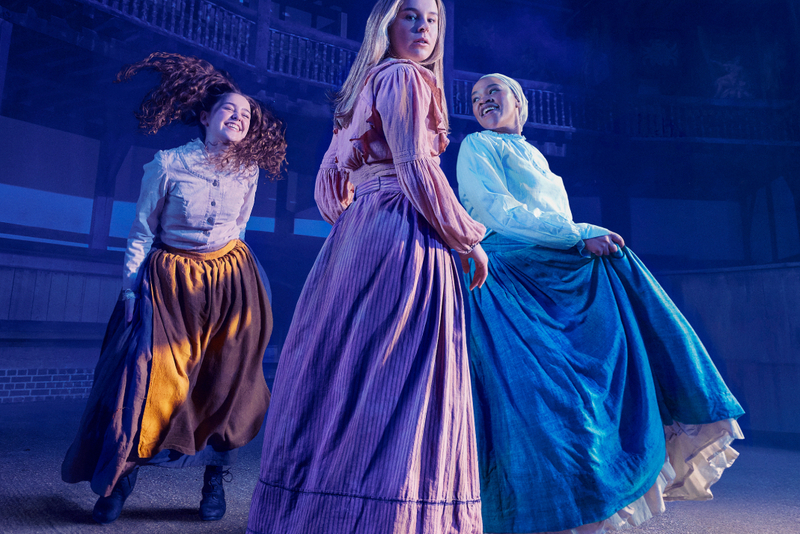The pearl fishers of the title are Nadir and Zurga, who have previously fallen in love with the same Hindu priestess but have forsworn their love in order to preserve their friendship. When a veiled priestess, brought to the village to pray for the safety of the fisherman, is revealed to be Leila, the very girl our boys are in love with, trouble ensues culminating in Zurga (the headman) burning the entire village to the ground, presumably killing everyone except Nadir and Leila. They escape together, so that’s ok.
This is the second revival at ENO for Penny Woolcock’s visually attractive, engaging production and it’s her work, along with that of set designer Dick Bird and lighting designer Jen Schriever, that provides much of what there is to enjoy about the evening. The 19th century orientalism of many previous productions is wisely avoided and we are transported to a busy, colourful, non-specifically “modern-day” Sri-Lankan coastal shanty-town, complete with lapping waves, which morph into a furiously angry sea as the deities get more and more annoyed. The aerial artists diving for pearls in front of 59 Productions’ back-projections are a nice cinematic touch.
Robert McPherson, playing Nadir, has a pleasing, bright tenor voice, but seemed strangely nervy and uncomfortable for much of the first night so that his long, legato phrases were sometimes a little uncomfortable to listen to. Jacques Imbrailo makes his ENO debut as Zurga; his baritone seems muted and dark in act 1, but perks up noticeably after the interval (when he gets better music to sing) so that the darkness turns to warmth, and by the tragic climax of the piece he has properly come into his own. Claudia Boyle gives a physically and vocally assured performance as Leila. Making the most of the limited opportunities Bizet gives her to display dexterity, she provides many of the vocal highlights of the evening. The always excellent James Creswell (bass) is sadly under-used in the role of the Nourabad, the high priest, but that’s hardly his fault.
It’s not a particularly thrilling evening for the ENO orchestra but, as ever, they and the redoubtable chorus deliver all that is asked of them. Roland Boer’s conducting is rock-solid, though one occasionally feels that some brighter tempos would be a bit of a relief.
It’s a pleasant evening, but not one to linger long in the memory.

 For most of us, all we know of Bizet’s The Pearl Fishers is the act 1 “friendship” duet, a regular favourite on Classic FM and a frequent choice for film soundtracks and TV advertising. There’s a reason for this: Pearl Fishers is a slight, immature piece, with a daft libretto (it is reported that after the first performance the librettists apologized and said that if they had known Bizet was any good they would have tried harder) but it has its moments, and we see glimpses of the mature music-dramatist who would later compose Carmen.
For most of us, all we know of Bizet’s The Pearl Fishers is the act 1 “friendship” duet, a regular favourite on Classic FM and a frequent choice for film soundtracks and TV advertising. There’s a reason for this: Pearl Fishers is a slight, immature piece, with a daft libretto (it is reported that after the first performance the librettists apologized and said that if they had known Bizet was any good they would have tried harder) but it has its moments, and we see glimpses of the mature music-dramatist who would later compose Carmen.


 Aditi Mangaldas and her company practise a style of dance drawn from the classical Indian form, Kathak, which traditionally combines acting, storytelling and singing alongside dance, employing rhythmic, percussive footwork and dizzyingly fast whirling and spinning.
Aditi Mangaldas and her company practise a style of dance drawn from the classical Indian form, Kathak, which traditionally combines acting, storytelling and singing alongside dance, employing rhythmic, percussive footwork and dizzyingly fast whirling and spinning.